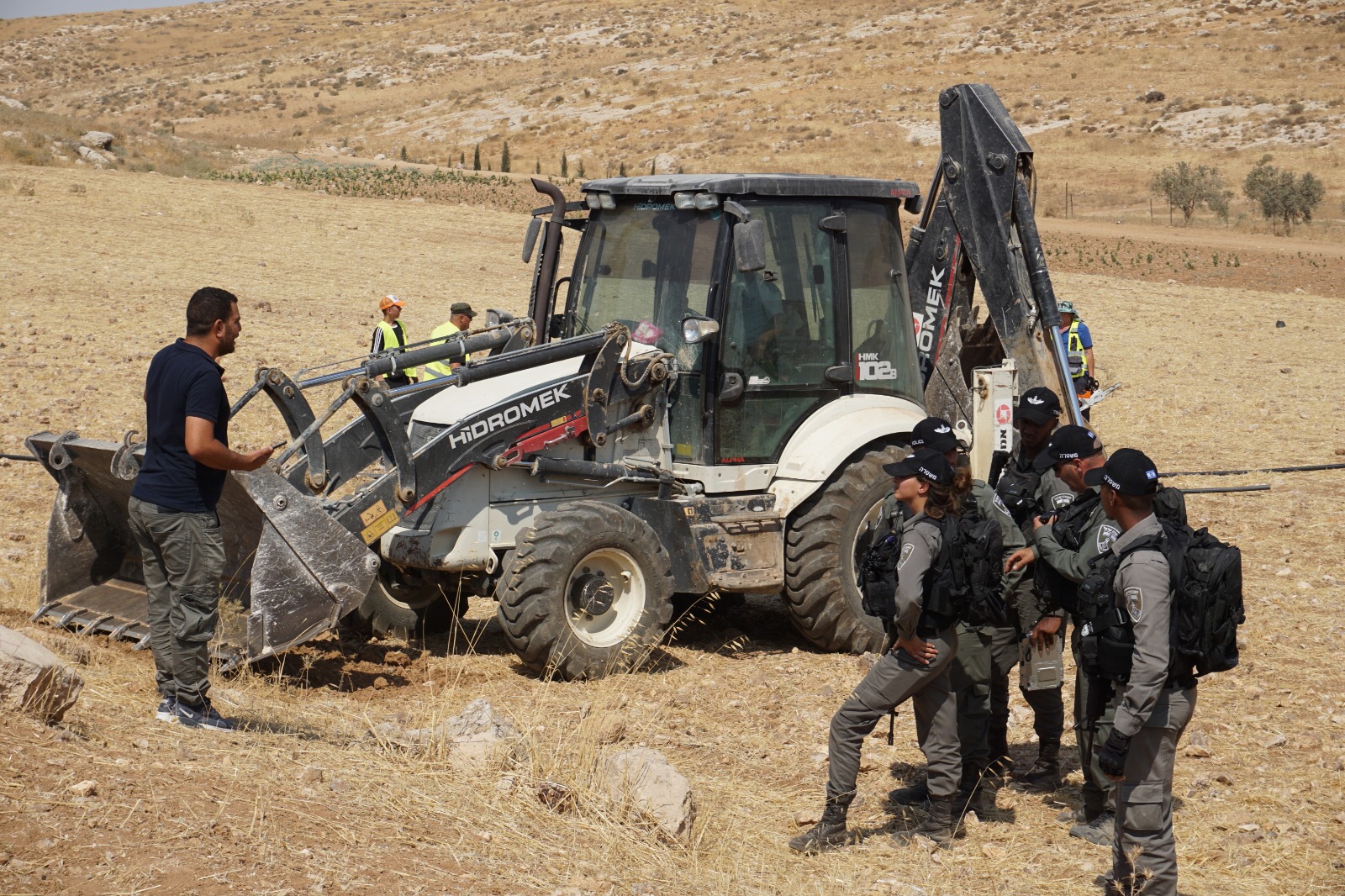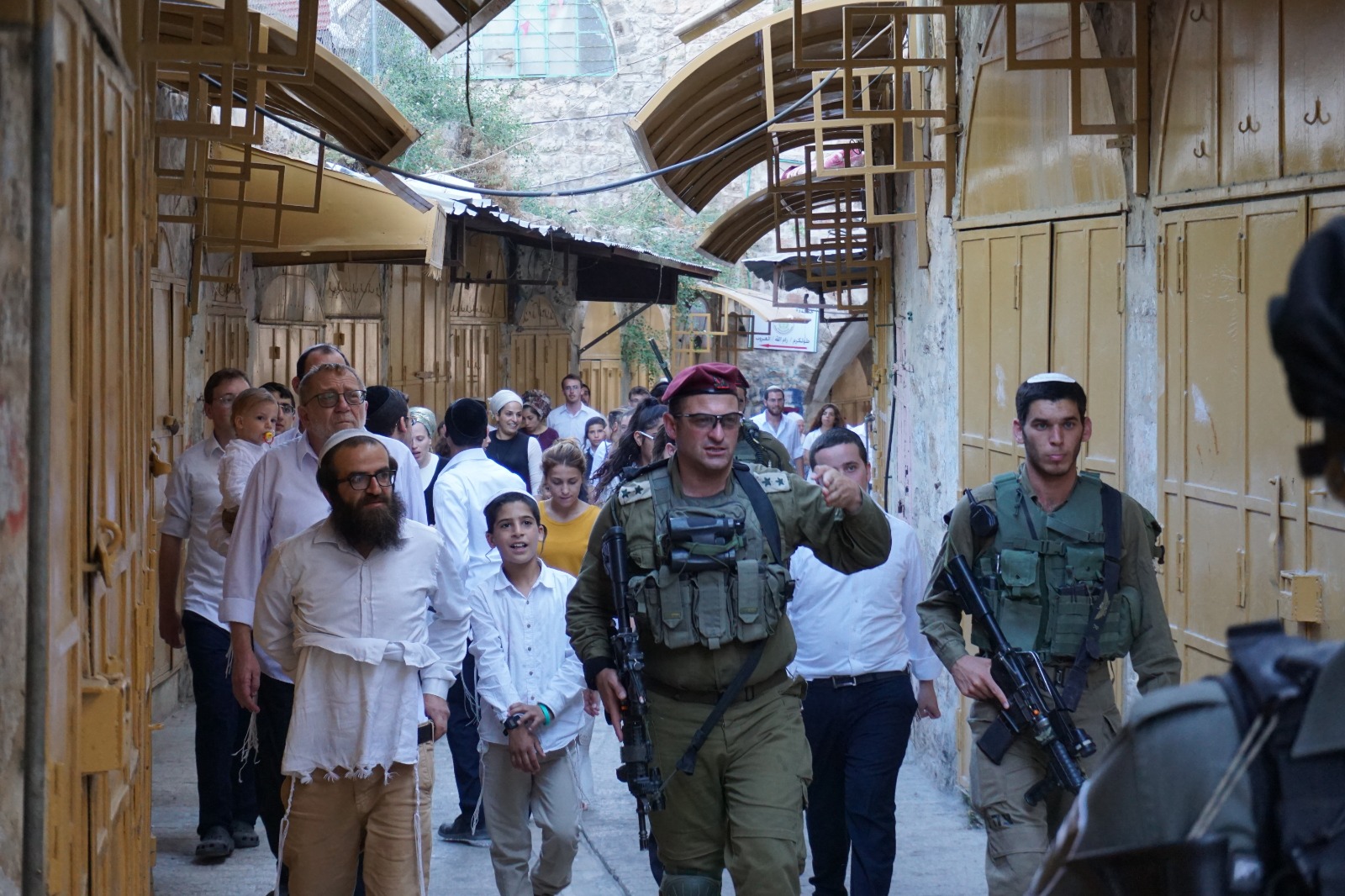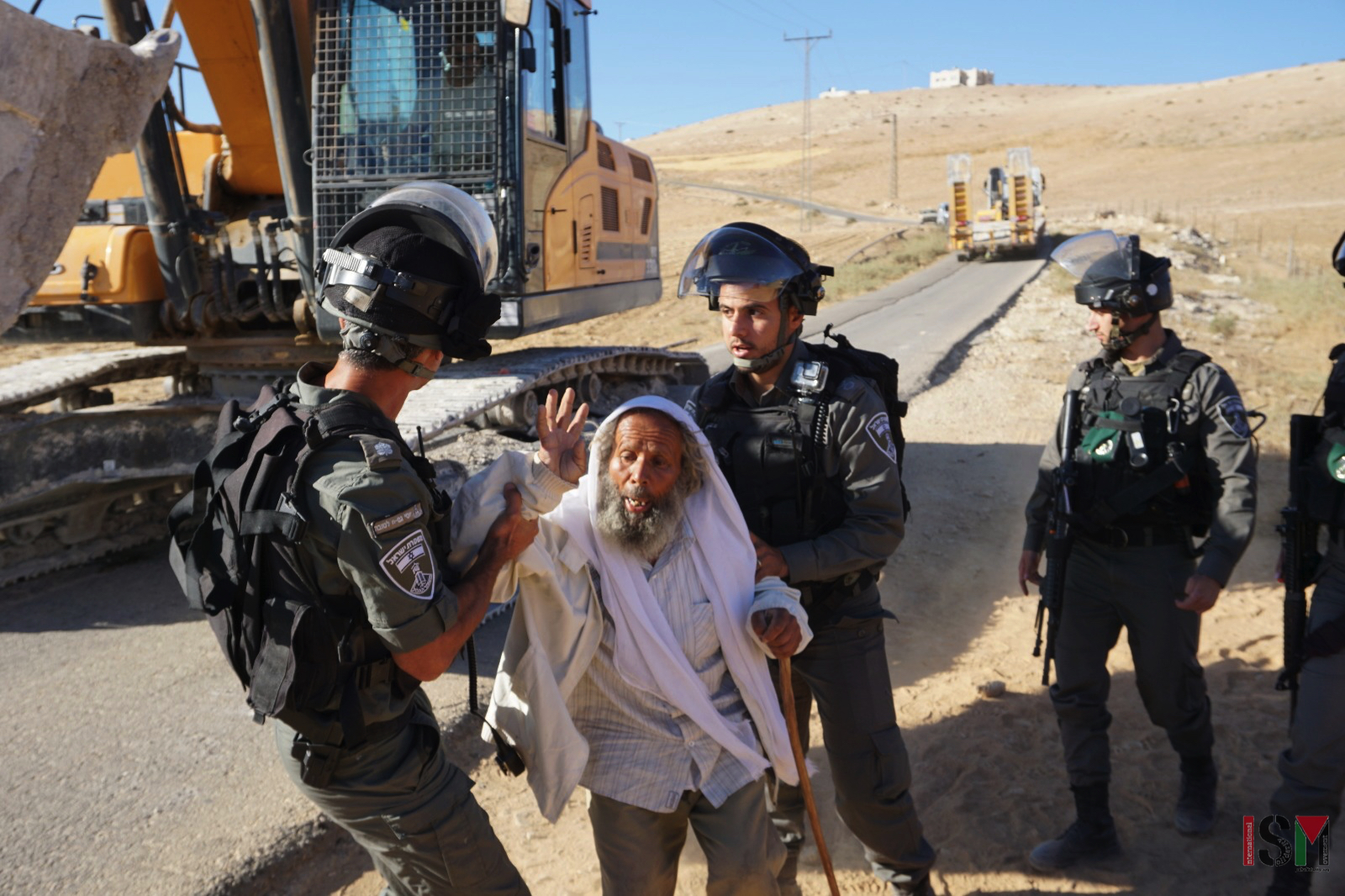Tag: Settlers
-
Water Series: ‘There’s no law in the world that says you can cut water from humans’
August 3 | International Solidarity Movement | South Hebron Hills, occupied Palestine This is the second of a series of reports documenting the control and devastation of water sources by Israel as a tool of oppression. Israel is escalating its war on water in the South Hebron Hills, demolishing wells, ripping out kilometres…
-
Settler tour exemplifies the difficult reality of occupation in the Old City of Hebron – a photo essay
July 7 | International Solidarity Movement | Hebron, occupied Palestine Every Saturday, illegal Jewish settlers from around the West Bank take a “tour” of the busy souq (market) in Old City of Hebron, the busiest market street in the area since the closure of Shuhada Street. Local Palestinians believe that the Israeli authorities facilitate the…
-
Livelihoods destroyed in two days of demolitions in South Hebron Hills
July 4 | International Solidarity Movement | South Hebron Hills, occupied Palestine The South Hebron Hills have faced two consecutive days of demolitions starting early yesterday morning, with bulldozers destroying water wells and uprooting over 500 trees in two villages. An elderly Palestinian activist from Um al-Khair was also hospitalised yesterday after being violently…



